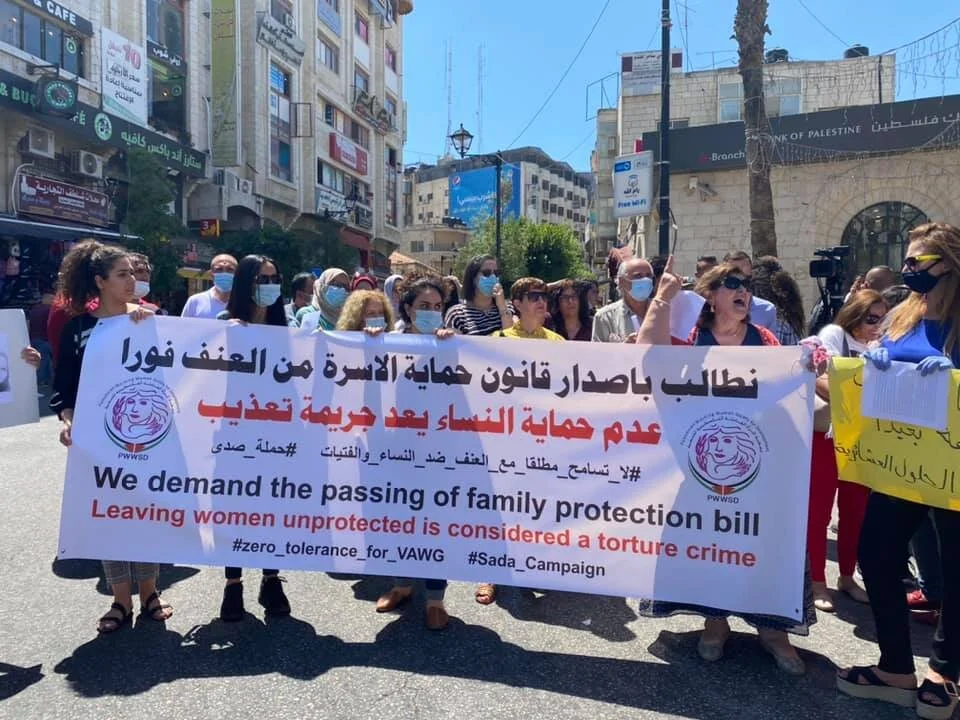Laws to end violence against women and girls.
Right across the Africa and the Middle East, women and girls are made more vulnerable to violence by laws that do not protect them. Some laws even condone violence against women and children. While women’s activism has achieved significant positive change and new protections over the years, our partners are still working to ensure proper legal frameworks protect women and girls from harm.

The law should be a means of protection, yet too often it is a basis for violence against women and girls.
Our partners across Africa and the Middle East are working to abolish and amend laws that not only fail to protect victims of violence, but can even protect the perpetrators. The penal codes of Syria and Iraq explicitly permit husbands and fathers to “punish” or physically “discipline” their spouse and children, while laws in Yemen and elsewhere contain considerable loopholes that allow rapists and murderers to walk free from court even when they are found responsible for such crimes.
Our partners PWWSD (above) campaigning for the passage of the Family Protection Bill. The bill represents a comprehensive approach to dealing with various forms of violence against women and girls in Palestine, including violence in the family, sexual violence, and human trafficking.
New laws, new protections.
Dismantling these frameworks and replacing them with modern systems based on principles of protection and equity have long been the priority of women’s rights activists. Through their work conducting policy analysis, issue advocacy and building the political will for change, their achievements have been remarkable.
In 2017, Tunisia passed the region’s first modern, comprehensive law to address violence against women and girls. That law includes provisions that criminalize violence, and protect and support victims. It provides protection from financial and political violence as well as physical. It also offers psychological support to women. Women’s activism has not stopped with the passage of the legislation, however, and work continues to pressure authorities to properly implement the law.
Just as important as new protections is wiping away many years of unjust law. In the past decade activists have succeeded in securing the abolition of notorious so-called ‘marry-your-rapist’ laws in Egypt, Jordan, Lebanon, Morocco, and Tunisia.
Securing legislative change is an essential part of the process of change, but it is not the end of the process. Laws will often validate or reflect deeper factors in a society, which also need to be addressed. For example, in countries where female genital mutilation (FGM) is prevalent, our partners know that outlawing the practice is not enough to end it. So their work encompasses efforts to tackle the cultural basis of these types of violence and inequity. In Egypt, the practice of FGM continues despite a ban in law, but campaigning has seen popular support for the practice fall from 90 to 60 percent in recent years. That work goes on.
Such progress and success spur on activists, showing to others across the region that it is possible to build popular support for positive change, as well as providing models for them to emulate and precedents to point to. It is inspiring and motivating both for those who succeed and those who strive for the same goals.
Women-led and youth-led organizations in the region are developing and proposing model laws to end violence against women and girls, building coalitions in communities and in parliaments motivated to ensure change happens.
As one of our partners recently noted, there has been a sea change driven by activism:
“A few years ago, we couldn’t even talk about violence against women. Then we could talk about it, but we were labeled victims. It’s changing! Women are innovative in the Arab region. So many women and men are fighting for equality in the family.”
Being part of a regional movement supports activists to broaden the horizons for their commnunities, showing that positibe change is possible.
